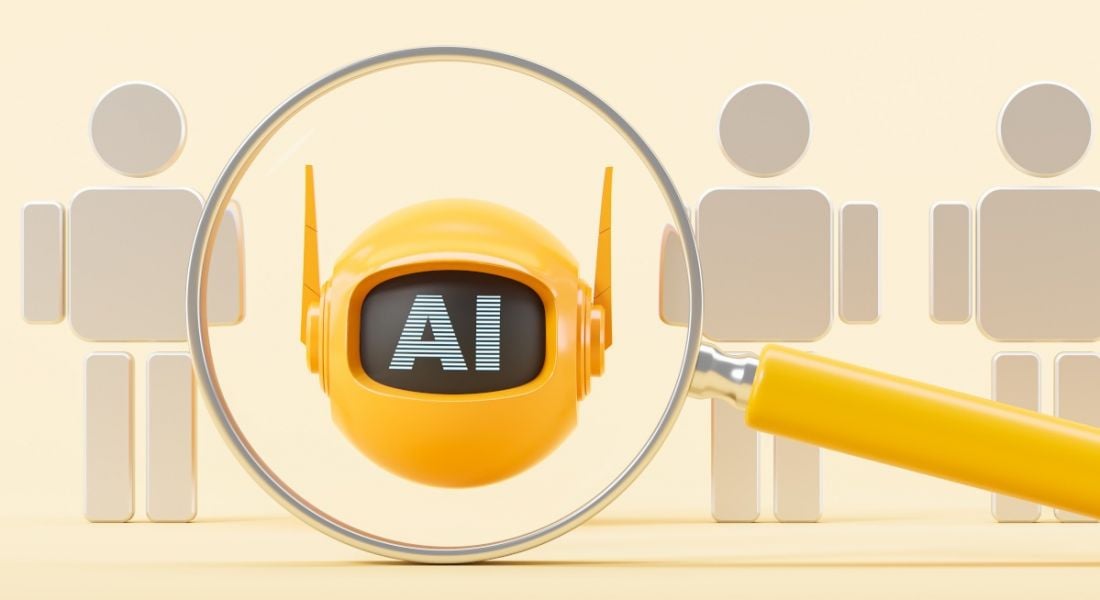If your company views AI as a strategic priority, you should think about embedding it in the C-suite.
Earlier this month the now former director of the French Tech Mission, Clara Chappaz, was named as France’s first minister for artificial intelligence (AI). During her tenure as the secretary of state for AI and digitalisation, she will support France’s ambition to be a global tech leader and further conversations about emerging tech. Chappaz’s appointment highlights the growing influence of AI and data technologies for industry.
For Barry Guiney, the COO of global executive talent and leadership advisory firm Odgers Berndtson Ireland, this AI boom has led to a rise in the organisational hiring of chief AI officers (CAIOs) – whose goal it is to develop and execute a strong AI strategy.
“Beyond driving significant value and competitive advantage, the CAIO plays a crucial role in educating and advising the board and other C-suite executives on AI technologies, their potential impact and their ethical implications,” Guiney told SiliconRepublic.com.
“As AI continues to evolve, using it responsibly becomes increasingly important. The CAIO would ensure that the organisation stays ahead of these developments, leveraging AI’s potential while maintaining ethical standards. As this is a transformative role, appointing a CAIO at the C-Suite level signals a serious commitment to deploying AI throughout the organisation.”
Why now?
The emergence of AI and other transformative technologies have had a global ripple effect, inspiring a sense of fear in people regarding job security and the potential to become obsolete. A 2020 report from the World Economic Forum predicted that by 2025 as many as 85m jobs could be displaced by a shift in the division of labour between humans and machinery, with 97m new roles created to account for mass workplace transformation.
According to Guiney, professionals with their ear to the ground, in terms of tech, such as chiefs of data, technology, information and, of course, chief AI officers, are going to be critical to companies aiming to make an impactful, yet smooth transition amid a period of great change.
“The rise of the CAIO role is a direct response to the generative AI boom over the past two years. This surge in AI capability and accessibility is transforming industries and fundamentally changing how we work. At the leadership level, companies are now grappling with the implications of AI on corporate governance, regulation and ethics,” he explained.
An article in the Harvard Business Review queried whether professionals in this data and AI leadership roles were being set up to fail, as they found themselves in a “high-pressure balancing act with a technology that offers huge risk and opportunities”.
“Corporate leadership is placing demands on [data and AI leaders] to deploy the potentially transformative capabilities of GenAI while avoiding harm,” the authors wrote.
But for Guiney, there are two main drivers for why now is the time to create AI leadership roles: firstly, stakeholders want to capitalise on the generative AI revolution; and secondly, there is a clear message coming from technology vendors that companies need to act now or “risk being left behind”.
Skills and qualifications
The road ahead for CAIOs is not straightforward and as the career progresses and becomes more common, it will be easier to avoid early mistakes and make decisions based on experience. A high degree of critical thinking, strategic planning and adaptability is crucial, with Guiney noting the importance of combining technical skill with leadership qualities.
“Having a CAIO means viewing AI not just as a tool, but as a core component of your strategic vision, positioning your company as a leader in the field.
“They create an environment where AI specialists and data engineers can thrive and innovate. They foster key partnerships that are crucial for leveraging the latest AI advancements and with a dedicated leader, these companies can navigate the complexities of AI integration more effectively.”
In terms of which companies actually need a CAIO, Guiney explained that currently most positions of this nature are found in larger organisations, with AI responsibilities often falling to chief data, information of technology officers in SMEs.
“In Ireland, most CAIOs are founders of AI start-ups and scale-ups. In the UK, the number of CAIOs is higher and includes major advisory firms.
“Globally, CAIOs are appearing in large organisations with the scale and data quality to justify the role, such as Dell Technologies, Avanade and the Mayo Clinic, all of which appointed CAIOs in the past year.”
“Companies that need a CAIO are those that view AI as a strategic priority and have the scale to leverage its potential.”
Don’t miss out on the knowledge you need to succeed. Sign up for the Daily Brief, Silicon Republic’s digest of need-to-know sci-tech news.




